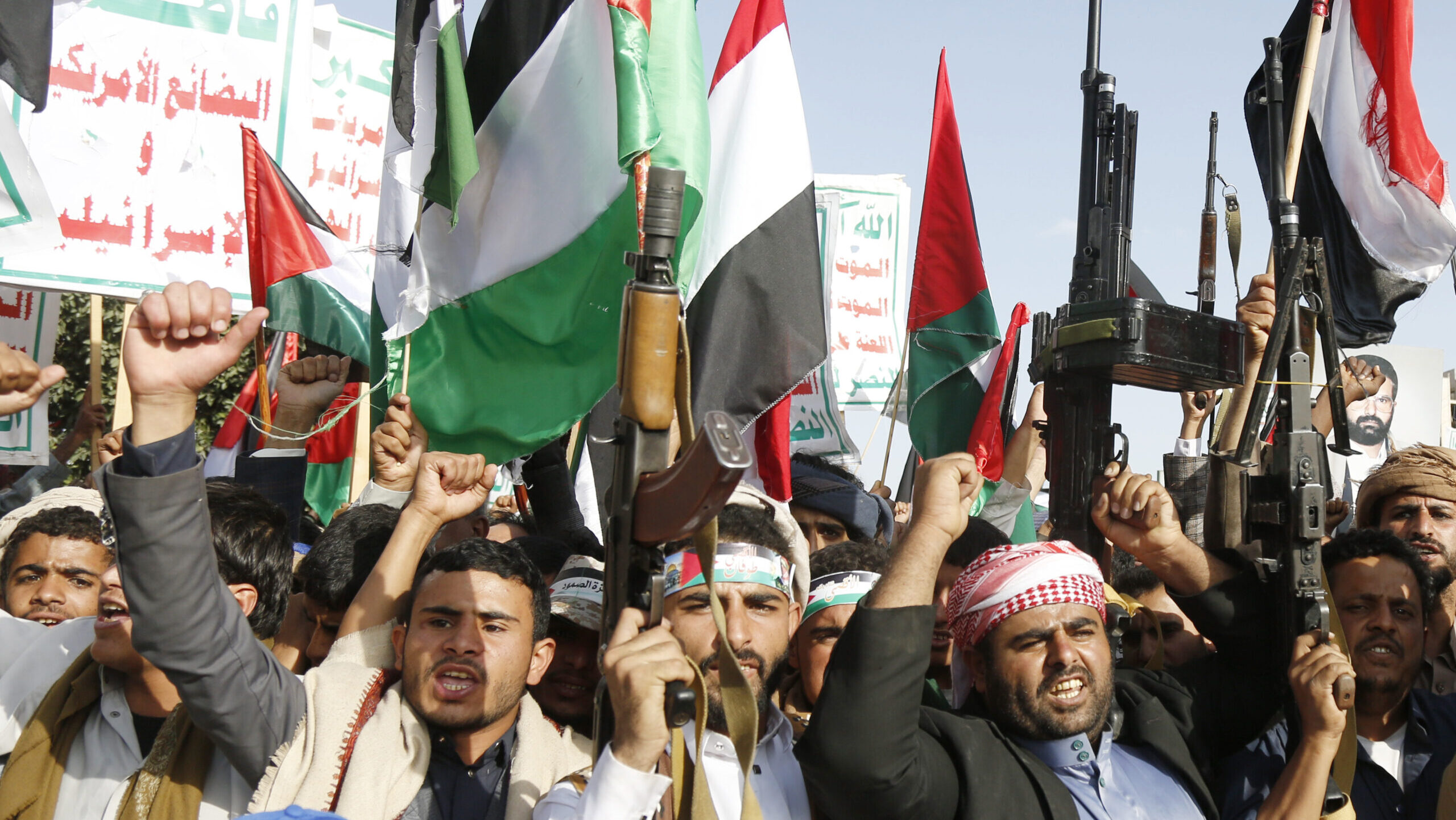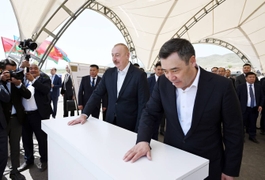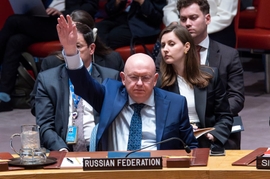Iran's President Ebrahim Raisi condemned the US airstrikes against Yemen's Houthi movement, describing the actions as a manifestation of the "aggressive" nature of Washington.
In a phone conversation with Mahdi al-Mashat, President of Yemen’s Supreme Political Council formed by the Houthi movement and the General People's Congress, Raisi stressed that the US strikes on Yemen expose its "true, aggressive, and anti-human rights nature," the Iranian president’s official website reported on January 14.
“Undoubtedly, such actions against the people who have resisted the aggression of outsiders for years and today still play an effective role in defending the oppressed people of Palestine will be condemned by the freedom-loving nations of the world,” President Raisi said.
In the early hours of January 12, the US and British warplanes, ships and submarines launched dozens of air strikes on the Yemeni capital, Sanaa, and several other provinces against the Iran-backed Houthi forces, also known as Ansarallah, in retaliation for months of attacks on ships in the Red Sea that reportedly were heading to Israel.
Following the outbreak of the 2023 Israel–Hamas war, the Houthis began to fire missiles at Israel and attack ships off Yemen's coast in the Red Sea, which they say is in solidarity with the Palestinians and with the aim to facilitate the entry of humanitarian aid into the Gaza Strip.
The UN Security Council adopted a resolution on January 10 that called for an end to weeks of attacks on commercial vessels by the Houthis, despite abstentions by Russia and China. In a statement on December 18, 2023, US Secretary of Defense Lloyd Austin announced the formation of a maritime coalition to protect navigation and trade routes in the Red Sea in the face of the Houthi attacks.
Ibrahim Muhammad al-Deilami, the Houthi envoy to Iran, said on January 13 that the group had warned Washington against taking further "reckless" action in the Red Sea against Houthi positions.
He contended that "American aggression against Yemen is nothing new," and said that "the Americans tried to secure a UN resolution to attack Yemen but failed in this respect."
On January 12, Iranian Foreign Minister Hossein Amir-Abdollahian praised the Houthi rebels' actions "against Israel" and said that the US should immediately stop military support for Israel.
"Yemen's action in supporting the women and children of Gaza and its opposition to the Israeli regime's genocide is commendable," he wrote in a post on X.
"Instead of a military attack on Yemen, the White House should immediately stop all military and security cooperation with Tel Aviv against the people of Gaza and the West Bank so that security returns to the entire region," he added.
Iranian Foreign Ministry Spokesman Nasser Kanani also condemned the US airstrikes in a statement, saying that the move was an "arbitrary action, a clear violation of Yemen's sovereignty and territorial integrity, and a violation of international laws and regulations".
On January 12, Iranian students gathered outside the UK embassy in Tehran to protest the US-UK airstrikes on Houthi targets in Yemen. The demonstrators "held placards and thanked the Yemeni people for supporting the Palestinians". The protesters chanted "death to America" and "death to Israel" outside the British embassy.
The Houthi movement is a Shia Islamist political and military organization that emerged from Yemen in the 1990s. Under the leadership of Zaidi Shiite religious leader Hussein al-Houthi, the Houthis emerged as an opposition movement to Yemen President Ali Abdullah Saleh, who they accused of corruption and being backed by Saudi Arabia and the US.
In 2003, influenced by the Lebanese Shia political and military organization Hezbollah, the Houthis adopted their official slogan against the United States, Israel and the Jews. The organization took part in the Yemeni Revolution of 2011 by participating in street protests and coordinating with other Yemeni opposition groups.
In late 2014, the Houthis repaired their relationship with Saleh, and with his help, they took control of the capital city. The takeover prompted a Saudi-led military intervention to restore the internationally recognized government in 2015, leading to an ongoing civil war that included missile and drone attacks against Saudi Arabia and its ally United Arab Emirates.







 Kyrgyzstan has joined the extensive reconstruction efforts in the Karabakh region of Azerbaijan, after a series of mega initiatives were launched b...
Kyrgyzstan has joined the extensive reconstruction efforts in the Karabakh region of Azerbaijan, after a series of mega initiatives were launched b...
 President Ilham Aliyev shed light on the evolving contours of the peace process with Armenia during an international conference in Baku this week. ...
President Ilham Aliyev shed light on the evolving contours of the peace process with Armenia during an international conference in Baku this week. ...
 Azerbaijan and Armenia started the process of demarcation of their border on Tuesday, with the installation of the first border markers based on ge...
Azerbaijan and Armenia started the process of demarcation of their border on Tuesday, with the installation of the first border markers based on ge...
 As the conflict between Ukraine and Russia escalates, the strategic importance of Kharkiv, Ukraine's second-largest city, has come sharply into focus.
As the conflict between Ukraine and Russia escalates, the strategic importance of Kharkiv, Ukraine's second-largest city, has come sharply into focus.



